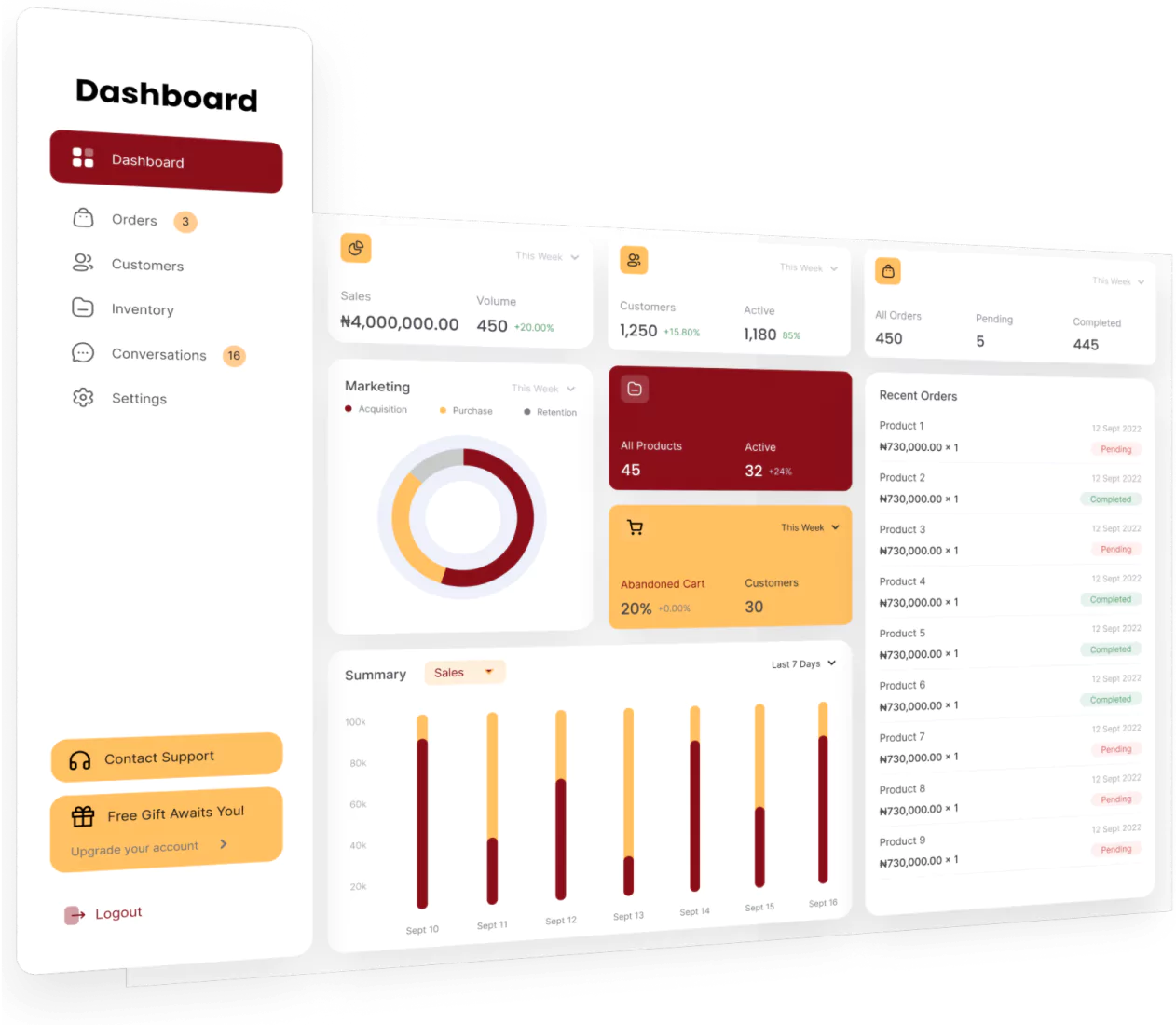In today’s fast-paced business environment, corporate strategy plays a critical role in guiding organizations towards long-term goals, whether it’s to improve efficiency, increase profitability, or drive growth. However, effectively implementing a corporate strategy requires more than just planning it requires smooth coordination, real-time data, and efficient operations.
This is where Enterprise Resource Planning (ERP) systems come in. By integrating various business functions and providing a centralized platform to manage processes, ERP systems enable companies to align their operations with corporate strategy more efficiently.
In this article, we will discuss how ERP system support the successful implementation of corporate strategies, highlighting key benefits and actionable insights to help your organization drive growth and stay ahead in a competitive landscape.
Sa artikulong ito, tatalakayin kung paano maaaring palakasin ng mga ERP solution ang iyong mga layunin sa estratehiya at baguhin ang iyong pagganap sa negosyo.
Table of Contents

Key Takeaways
|
What is Corporate Strategy?
Corporate strategy is a company’s long-term business goals and the actions needed to achieve them. It involves aligning internal strengths with external market conditions ensuring that the organization’s efforts are focused and purposeful.
Effective strategic planning is essential, as it ensures that every decision supports the broader vision for the company’s future. Rather than merely setting goals, strategic planning focuses on identifying the right paths to reach those goals efficiently and sustainably.
A robust growth strategy not only positions the company competitively but also adapts to shifting market dynamics technological advancements, and evolving consumer trends. This allows businesses to remain agile and proactive in a constantly changing landscape.
Ultimately, corporate strategy provides clarity and direction, helping the organization align its efforts toward achieving long-term objectives. By establishing clear goals and maintaining a sense of purpose, companies can ensure that all departments and individuals work cohesively toward the same objectives.
The Importance of Company Strategy
A strong company strategy is a foundation for achieving long-term goals and maintaining a competitive edge. Let’s break down the key reasons why a well-executed strategy is crucial for business success.
1. Effective resource allocation
Enhancing operational efficiency lies at the core of optimizing resource use. It starts with the effective allocation of resources to areas that offer the greatest returns. A well-defined corporate strategy focuses on prioritizing investments, managing costs, and streamlining processes to boost productivity, ultimately driving a stronger bottom line.
2. Competitive advantage
Market competitiveness today goes beyond price wars and product features it’s about differentiating your brand in a crowded marketplace. Aligning your corporate strategy with market trends and consumer demands helps you stay ahead of the competition and establish your business as a leader in the industry.
3. Adaption to change
Change is the only constant in the business world. Business adaptability refers to the ability to respond quickly to shifts in the market, regulatory changes, or technological advancements. Staying adaptable ensures your business remains relevant and can adjust operations to address new challenges and seize emerging opportunities.
4. Organizational alignment
Aligning teams and departments toward common business objectives fosters collaboration and reduces fragmented efforts. Strategic alignment ensures that all organizational activities are in line with strategic goals, driving growth and innovation as a unified force.
9 Ways How ERP Systems Help Implement Corporate Strategy
Implementing a corporate strategy requires accurate tracking and efficient operations. In this section, we’ll explore nine ways ERP systems support corporate strategy:
1. Centralized data management
Implementing ERP systems supports centralized master data management by consolidating information from multiple departments into a single, unified platform. This structured approach ensures real-time access to consistent and accurate master data, allowing businesses to make confident, data-driven decisions with greater precision.
2. Enhance team collaboration
Fostering a collaborative work environment has become a necessity for success. ERP systems play a crucial role in achieving this by eliminating information silos, ensuring that data flows seamlessly across departments.
This integration promotes effective teamwork and clear communication, both of which are vital for aligning efforts and accomplishing shared business objectives efficiently.
3. Streamline business processes
Businesses rely on ERP systems to simplify complexities and optimize workflows. By streamlining operations, these systems enhance process efficiency across all levels of an organization, ensuring that every department functions cohesively and effectively toward achieving strategic goals.
4. Improve visibility and transparency
In modern business management, visibility and transparency are essential elements for ensuring success and sustainability. ERP systems play a pivotal role by offering stakeholders clear and comprehensive insights into the organization’s operations.
This level of accessibility enhances oversight, promotes informed decision-making, and strengthens accountability across all levels of the business.
5. Supply chain management
By utilizing ERP systems, businesses can optimize their supply chains, improving the movement of goods and services to meet customer demands efficiently. This streamlined approach enhances operational performance and significantly boosts customer satisfaction by ensuring timely and reliable delivery.
6. Enhance customer experience
ERP systems integrate seamlessly with Customer Relationship Management (CRM) modules, enabling businesses to personalize and enhance every customer interaction. This synergy adds significant value to the customer experience, fostering stronger relationships and reinforcing brand loyalty over time.
7. Compliance risk management
Given that regulatory compliance is a top priority for most businesses, the built-in compliance features of an ERP system play a crucial role in helping organizations meet the latest industry standards and legal requirements.
These features are designed to streamline adherence to regulations by automating compliance checks, maintaining accurate records, and ensuring that processes align with current laws.
By leveraging these tools, businesses can reduce the risk of non-compliance and focus on their core operations with greater confidence.
8. Scalability and flexibility
For businesses seeking to expand, ERP systems offer the essential infrastructure to support growth seamlessly. They help prevent operational bottlenecks and ensure that the organization remains scalable and adaptable to changing needs over time.
9. Comprehensive report and analytics
ERP systems consolidate data to produce detailed reports, empowering leaders with the ability to make informed, data-driven decisions. This ensures that strategies are aligned with actionable insights, enabling more effective planning and execution.
HashMicro ERP System as The Best Solution for Corporate Strategy
The HashMicro ERP system is a powerful solution designed to support corporate strategy execution. It streamlines operations, enhances decision-making, and improves productivity through features like real-time data analytics, inventory management, financial reporting, and workflow automation.
Key benefits of HashMicro’s ERP solutions include:
- Customizable modules to support diverse corporate functions.
- Streamlined control over financial and inventory management.
- Advanced data analytics to drive informed and strategic decision-making.
- Automated workflows that reduce manual tasks and minimize errors.
To meet evolving strategic objectives, you need technology capable of adapting to every shift in your organization. HashMicro’s ERP solutions are built to grow with you, incorporating the latest advancements to ensure your business stays ahead of the competition. With HashMicro, you can confidently position your organization at the forefront of your industry.

Conclusion
The successful implementation and integration of robust ERP systems serve as a key driver for achieving ERP-driven success. By streamlining complex business processes, these systems create a solid foundation for operational excellence, enabling businesses in the Philippines to adapt quickly to the rapidly changing economic landscape with agility and precision.
HashMicro ERP stands as a prime example of this forward-thinking approach, specifically designed to meet the unique demands of the Philippines’ dynamic economy. Its highly customizable and scalable features empower your business to align strategic goals with day-to-day operations effectively.
By selecting a solution that fosters growth and innovation, your enterprise can confidently pursue its long-term objectives, assured of a future marked by continued success. Don’t miss the opportunity to try the free demo now!

FAQ Corporate Strategy
-
How does corporate strategy differ from business strategy?
Corporate strategy focuses on the overall direction of a company, often across multiple business units, while business strategy is concerned with achieving specific goals within individual departments or divisions.
-
How can ERP systems support corporate strategy implementation?
ERP systems streamline processes, provide real-time data insights, and automate workflows, ensuring businesses can track performance, allocate resources effectively, and execute strategies efficiently.
-
What tools are helpful for implementing corporate strategies?
Tools like ERP systems, performance management software, and strategic frameworks (e.g., SWOT analysis or Balanced Scorecard) can aid in effective implementation and tracking of corporate strategies.
{
“@context”: “https://schema.org”,
“@type”: “FAQPage”,
“mainEntity”: [{
“@type”: “Question”,
“name”: “How does corporate strategy differ from business strategy?”,
“acceptedAnswer”: {
“@type”: “Answer”,
“text”: “Corporate strategy focuses on the overall direction of a company, often across multiple business units, while business strategy is concerned with achieving specific goals within individual departments or divisions.”
}
},{
“@type”: “Question”,
“name”: “How can ERP systems support corporate strategy implementation?”,
“acceptedAnswer”: {
“@type”: “Answer”,
“text”: “ERP systems streamline processes, provide real-time data insights, and automate workflows, ensuring businesses can track performance, allocate resources effectively, and execute strategies efficiently.”
}
},{
“@type”: “Question”,
“name”: “What tools are helpful for implementing corporate strategies?”,
“acceptedAnswer”: {
“@type”: “Answer”,
“text”: “Tools like ERP systems, performance management software, and strategic frameworks (e.g., SWOT analysis or Balanced Scorecard) can aid in effective implementation and tracking of corporate strategies.”
}
}]
}





















